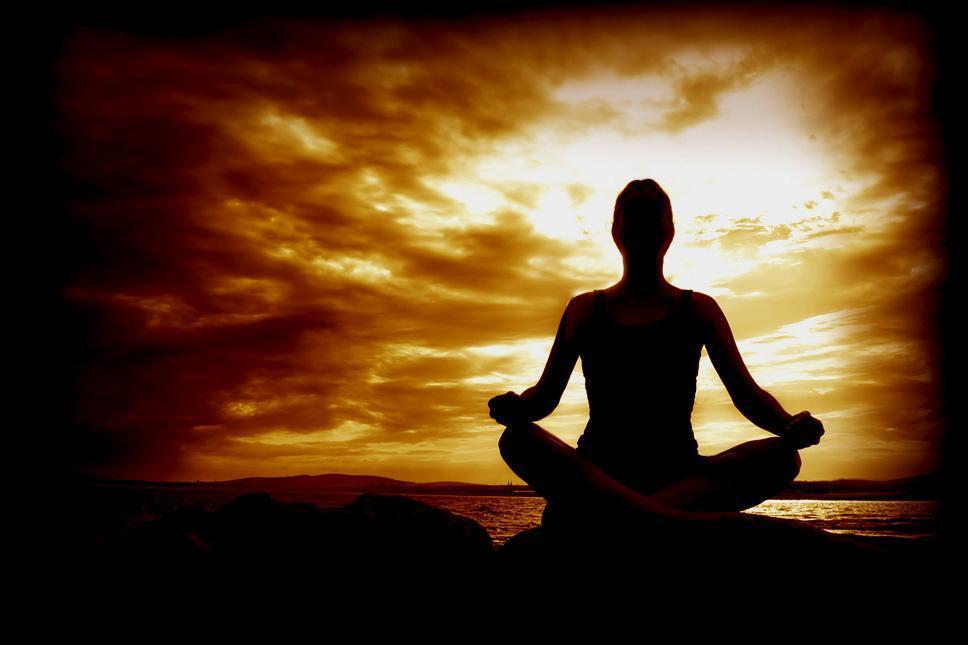There's a six-minute video of Louis C.K. on the Conan O'Brien Show explaining where he won't buy his daughter a smartphone that's making the rounds among Buddhist types, people who usually share quotes from the Dalai Lama and pictures of nature. Why? It expresses the essence of the Buddha's teaching that life is suffering (and we try to get away from the truth of that by distracting ourselves with Angry Birds and other apps) but that it doesn't have to be:
You need to build an ability to just be yourself and not be doing something. That's what the phones are taking away, is the ability to just sit there. That's being a person. Because underneath everything in your life there is that thing, that empty — forever empty. That knowledge that it's all for nothing and that you're alone. It's down there.
And sometimes when things clear away, you're not watching anything, you're in your car, and you start going, 'oh no, here it comes. That I'm alone.' It's starts to visit on you. Just this sadness. Life is tremendously sad, just by being in it...Or, as the Buddha succinctly said: Everybody suffers. Not every minute. Not always in big dramatic ways. But, yeah, everybody suffers. (The First Noble Truth)
That's why we text and drive. I look around, pretty much 100 percent of the people driving are texting. And they're killing, everybody's murdering each other with their cars. But people are willing to risk taking a life and ruining their own because they don't want to be alone for a second because it's so hard.
Why do we suffer? We want the newest smartphones to take distract us from our feelings, which may be unpleasant. But that only works for a while, so then we need something new. (The Second Noble Truth: The cause of suffering is craving or desire or the belief that getting that new smartphone will give us lasting happiness.)
But the good news is: You can stop suffering (Third Noble Truth). There is a way. (Fourth Noble Truth.)
To a great extent, that way involves being able to stay with the emotion we were trying to get away from by escaping into stuff and realizing that it's not all that bad. Suffering is the fear and anxiety about what will happen if we feel the bad thing -- which itself isn't as bad as the suffering.
Louis C.K. talks about hearing the Bruce Springsteen song "Jungleland" as he's driving:
And I go, 'oh, I'm getting sad, gotta get the phone and write "hi" to like 50 people'...then I said, 'you know what, don't. Just be sad. Just let the sadness, stand in the way of it, and let it hit you like a truck.'
And I let it come, and I just started to feel 'oh my God,'and I pulled over and I just cried like a bitch. I cried so much. And it was beautiful. Sadness is poetic. You're lucky to live sad moments.
And then I had happy feelings. Because when you let yourself feel sad, your body has antibodies, it has happiness that comes rushing in to meet the sadness. So I was grateful to feel sad, and then I met it with true, profound happiness. It was such a trip.
The thing is, because we don't want that first bit of sad, we push it away with a little phone or a jack-off or the food. You never feel completely sad or completely happy, you just feel kinda satisfied with your product, and then you die. So that's why I don't want to get a phone for my kids.
That pretty much sums up every book Pema Chodron's ever written. But we also get bored with teachings and think we need to make it more complex. Really, though, it comes down to: Notice what you're feeling. Notice how you want to escape from it. Don't. Stay with it and see what's on the other side.
And do that for the rest of your life.








